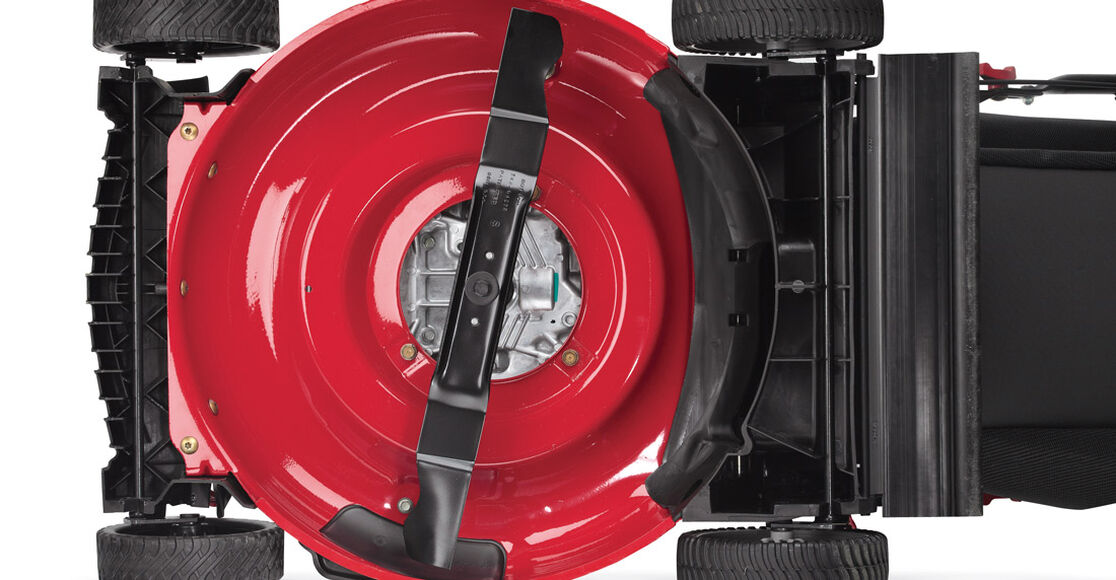Mower blade terminology can be a little confusing. Local colloquialisms and engineering terminology (such as "3-in-1" or "high-lift") have also contributed to this confusion.
Essentially there are only TWO basic styles of mowing blades used or approved for use on our current products:
- The standard style of mowing blade is essentially designed for cutting grass and effectively discharging the clippings out from the deck to fall onto the lawn, or to be captured in a grass collection system. Standard blades are also referred to as "2-in-1" (discharging & bagging) or "high-lift" blades (because they are designed to create a higher-lifting airflow).
- Mulching blades generally have a more curved style surface and frequently include extra cutting surfaces along the blade edges. These blades may also come in a "+" design (which is actually two individual blades arranged in a perpendicular fashion to enhance mulching). The "+" blades are usually found on older style mowers; newer ones utilize blades with more advanced mulching technology.
Mulching blades may also be referred to as "3-in-1" (mulching, discharging & bagging) or "all-purpose" blades.
Bear in mind that the re-circulating airflow design of 3/1 blades makes them less efficient at discharging grass clippings than a standard 2/1 blade. As with most all-purpose tools, there is some give and take as opposed to using a tool designed for a more specific purpose.
If you're experiencing less-than-desired cutting or discharging performance with a 3/1 blade, you may want to check into using a 2/1 blade. Conversely, if you're using a 2/1 blade and want to mulch clippings, you should see about the availability of mulching blades or a mulching kit.*
The type of blade installed on a new mower is a decision the retailer makes for each model of mower, based on the expected needs of most customers. If you're unsure of which blade is on a particular model, inspect the blade. Cub Cadet Genuine Factory Parts blades have part numbers stamped into them. Then compare these part numbers with the unit's Operator's Manual or Parts List.
It is true there are many other styles of blades available. But since we don't manufacture or recommend using these other aftermarket styles, we will leave them out of this discussion. Should you want more information on special application or aftermarket blades, you should contact the companies that make these products. NOTE: Customers using non-O.E.M. blades do so at their own risk. The use of unapproved (non-O.E.M.) blades may void any or all of the mower and engine factory warranties.
*MULCHING KITS - These generally consist of mulching blades and a mulching plug (which closes off the discharge opening to keep the clippings contained under the deck for re-cutting) plus any necessary hardware for installation. Please check with your parts distributor regarding the contents of a particular mulching kit.
